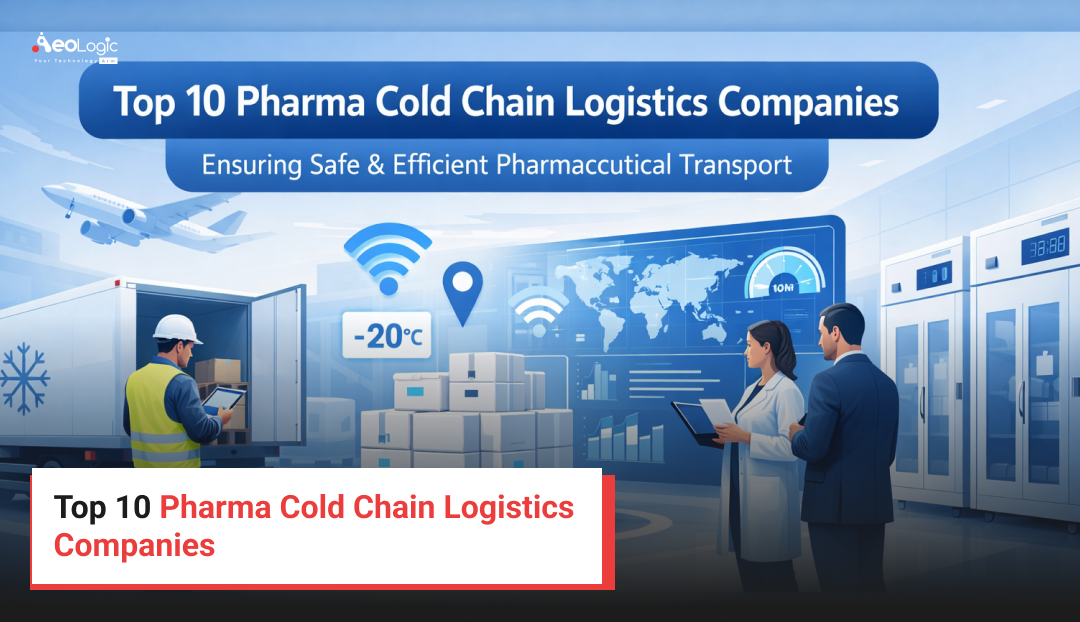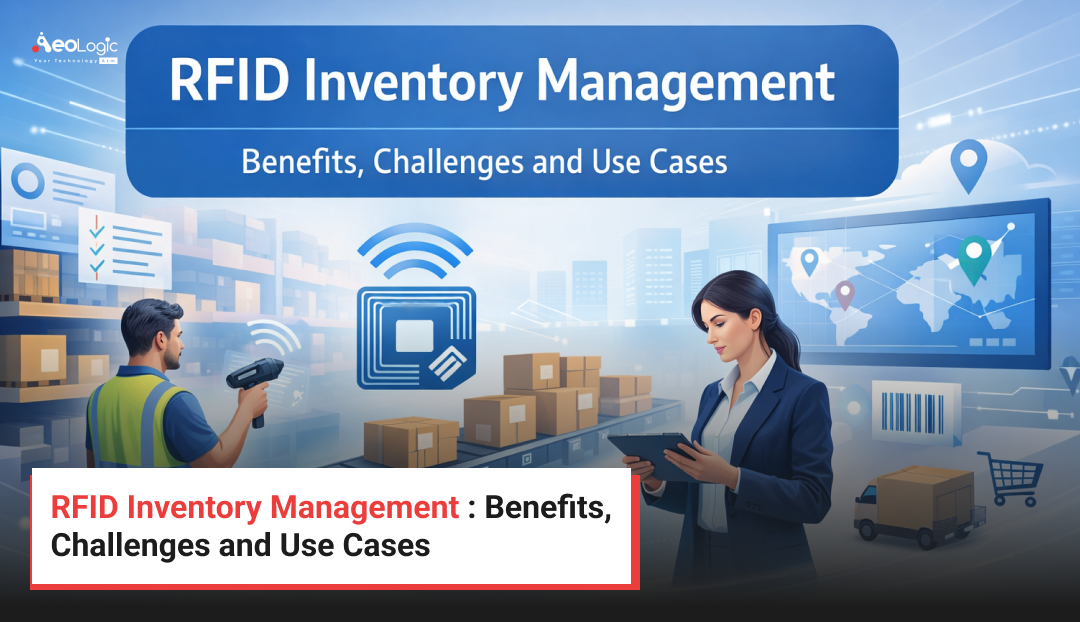Every sector has its own language, processes and problem points. What works perfectly in retail may seem completely displaced in the health area. A system built for logistics may collapse under heavy financial sector compliance demands. And yet, for years, many companies have tried to stretch unique software in their specialized operations-amazing results. This is where the power of personalized software development becomes not only valuable but essential.
Today’s commercial scenario requires accuracy. Companies cannot afford to waste hours improving generic tools, correcting integrations or adaptation of workflows to meet rigid software limitations. They need systems that speak their language from day one. Systems that solve your exact problems – not the average problems of an average user. This is where the entry of industry -specific software solutions, offering tailor -made tools for the exclusive environment of a company.
As competition increases and operational complexity grows, ready -to -use platforms usually fall short. They have no flexibility, focus and long -term scalability that modern organizations need. Whether it automates a specialized process, improving conformity tracking or creating a end -to -end workflow that maps exactly as a company is performed, custom software development offers incomparable potential.
This blog explores how adapted digital tools are the industries. From manufacturing and health to real estate and logistics, we will dive into the ways that industry -specific software solutions are closing gaps, simplifying operations and giving companies a competitive advantage. If you have already felt you are forcing your business to a box just to make your software work – maybe it’s time to turn the script and let your software fit your business.
When One-Size-Fits-All Software Starts Holding You Back
At first glance, ready -to -use software seems to be the fastest way to digital transformation. It is accessible, available immediately and usually comes with a family interface or a recognizable brand. But over time, cracks begin to show. What seemed convenient at first gradually becomes a commitment – which becomes more expensive and frustrating as your business climbs or change direction.
Generic platforms are designed for large appeal, not accurate. They meet the most common needs of the largest number of users. This means that the resources your company really needs can be buried under the layers of irrelevant functionality – or worse, losing completely. Alternative solutions become the norm. The spreadsheets multiply. External tools are recorded in ducts, hoping that something like a unified workflow will emerge. And all the time, efficiency suffers.
This is especially true for industries that operate with regulatory restrictions, complex processes or specialized functions. A logistics company cannot offer data synchronization delays in route planning. A health service provider cannot compromise data security or patient record management. These are not cases of border-border critical mission realities that the ready-to-use software has not been built to deal with.
This is when organizations begin to realize that growth is not just more users or more licenses – means evolution of complexity. And the more your business grow, the more generic tools the more misaligned they become. What you really need is something designed to adjust to your workflows, your language, your compliance rules – not someone else’s ones.
This is the inflection point where companies resort to the development of personalized software. It is not about completely rejecting pre-constructed tools. It is about recognizing its limits and choosing a smarter path. One where the software leans into the business – not the other way around. This is where the conversation changes “How can we make this software work for us?” For “How can we create software that works the way we do?”
The result is not just a better tool – it’s a better way to run your business. And increasingly, this transformation is being fed by industry -specific software solutions, designed from the beginning to address the nuances of each vertical.
Why Custom Software Development Solves the Problems Generic Tools Can’t
When companies finally decide to go beyond generic tools, they are not just looking for new software – they are looking for a solution that really understands them. This is the fundamental difference, custom software development brings to the table. This is not about starting from scratch because of that. It is about designing technology that seems a natural extension of how your organization operates.
Every sector has vital processes for daily operations and often these processes are not supported by ready-to-use platforms. Be a quotation system for a specialized manufacturer, an automated conformity tracker for a financial service company or an integrated reserve mechanism for a logistics provider, the specification material. And this is where custom business applications become invaluable.
With personalized development, companies gain full control over resources, interface, integrations and even data architecture from their system. There is no need to force square workflows in round user experiences. Everything – from user permissions to automation triggers – can be designed around what your team really does, not what a distant product team has assumed you may need.
There is also the question of scalability. Many companies adopt ready -made tools just to find that as they grow up, the software becomes slow, inflexible or swollen with irrelevant resources. On the other hand, the development of personalized software allows modular and iterative constructions. You can start with the main functionality, test it under real-world conditions, and expand it as your operations evolve. This adaptability is what it offers the personalized platforms its long -term value.
And while the cost is often seen as a barrier to personalized development, the long -term economy tells a different story. Companies spend thousands – sometimes more – adapting to generic software limitations, correcting plugins, paying unused resources or managing disconnected systems. Over time, the initial investment on a platform created for specific purposes pays off by eliminating waste, reducing manual work and allowing softer operations in general.
Most importantly, custom software development is not just a better functionality. It is about competitive advantage. When your system reflects the way you operate – when it is built for your team, your customers and your market – it becomes a strategic asset, not just technical. This is the type of transformation that generic tools simply cannot offer.
In the next section, we will examine more closely how industry-specific software solutions carry this concept even further, focusing on the exclusive needs of different health vertical and manufacturing to logistics and retail.
How Industry-Specific Software Solutions Address Real Operational Challenges
Although personalized software offers flexibility, it is the focus of industry -specific software solutions that make them especially powerful. These platforms are not only adapted – they are deeply informed by the realities, regulations and workflows of a particular sector. This is what makes them so effective. They do not intend to be everything to everyone. Instead, they intend to be exactly what a specific type of business needs.
When the software is built with a deep understanding of a vertical, it goes beyond basic functionality. It reflects the industry vocabulary, its compliance requirements and its typical user behavior. A medical care solution, for example, should be designed with HIPAA, restrictions on patient data access and integrated consultation management. A retail logistics application should be built around real -time inventory, supply chain synchronization and seasonal demand changes.
This focus level is what differentiates software to vertical industries. This is not customization after the fact is created from the beginning. These solutions are created in direct response to known operational points of pain and, as they were refined in a single context of industry, are more intuitive, efficient and reliable.
For example, in manufacturing, industry -specific software solutions usually include advanced features such as machine performance monitoring, automated programming, and compliance documentation adapted to ISO standards. In finance, the software can be preloaded with audit trails, report models and regulatory update tracking. These are not extra resources. They are needs – and generic tools almost never include them.
This is where personalized software development and vertical specialization intersect. While many companies start with a large platform and try to adapt it, others go straight to solutions specifically built for their sector. And increasingly, this decision pays off. Whether through faster integration, less integration problems or better team support that speak the industry language, the results are immediate and measurable.
Custom business applications also improve user satisfaction. When employees interact with a familiar system, it reflects their daily tasks and simplifies, instead of complicating their work, adoption rates go up. The processes are executed faster. Errors fall. Training times shrink. In industries where time and accuracy are critical, these improvements can have a direct impact on results.
As markets evolve and customer expectations increase, the ability to deploy systems that are already aligned with their operational model becomes a competitive advantage. And that’s exactly what industry-specific software solutions offer not as a theoretical benefit, but as a proven result.102910
Real-World Use Cases of Software for Vertical Industries
The best way to understand the value of personalized software development is to see it in action. In the sectors, companies are replacing clumsy platforms, accurately constructed tools that solve the challenges of generic solutions consistently ignoring. These are not just technical updates – they are operational reviews that directly improve performance, compliance, customer experience and scalability.
In logistics, for example, time and coordination are everything. Ready to use software may offer shipping tracking, but will not adapt to real -time route optimization, last mile visibility or sudden interruptions in supply chain flow. A global logistics company has resorted to industry -specific software solutions to design a platform that integrate traffic data, warehouse inventory levels and regional fuel prices. The result was a dynamic order mechanism that reduced delays in delivery by 27% in the first trimester of implementation.
In the health sector, a multi-specialty clinic faced repeated compliance lapses using a generic Electronic Health Registration System (EHR). The platform has not been able to track the different report requirements in departments or support patient data flows without manual intervention. Through personalized software development, they built a unified system that automated conformity tracking, consultation management and specialized collaboration. What previously required spreadsheets and numerous side dishes have become a continuous workflow built accurately for your service model.
In retail, where agility defines success, a regional chain fought with changes in seasonal demand and outdated inventory systems that could not synchronize in physical and on -line channels. By deploying a personalized commercial application that centralized inventory, tracked customer preferences and expected reordering cycles, they dramatically reduced excess storage and substocks. Their new system was not just software – became a strategic partner in merchandising decisions.
Even in education, schools and universities are moving away from swollen legacy platforms. A private university has opted for a software approach to the vertical industries, developing a student life cycle management tool that has been personalized for your admission model, classification system and ex -student engagement strategy. Contrary to pre-wide ERP platforms, this system aligned with its long-term academic values, culture and objectives-not just its administrative tasks.
These are just instantaneous. But everyone points to the same conclusion: when companies invest in industry -specific software solutions, they stop adapting to tools and start creating tools that adapt to them. Each use case proves that the real power of technology is not in its broad appeal, but in its ability to provide smart and focused solutions to problems that matter.
It is not about using the software to scan inefficiencies. It is about projecting platforms that completely remove these inefficiencies – silently, effective and permanently.
Beyond Efficiency: The Strategic Edge of Custom Software Development
J Speed and efficiency are important, but they are just the beginning. The deepest value of personalized software development is revealed over time – how well your systems are cast, how easy they adapt, and how perfect they grow alongside their business. This is what separates short -term corrections from long -term solutions. And for many companies, it is what transforms the technology of a cost center into a competitive advantage.
When you create software with your own operations in mind, every feature has a reason to exist. There is no coton or redundant functionality. The result is a system that performs faster, breaks less and integrates cleaner with other tools. Whether you add users, expanding to new regions or launching new services, your platform is ready – because it has been built with your reality in mind from the first day.
Custom business applications also unlock more accurate and insightful data. When processes are customized, the data they produce. Instead of gathering reports of five different systems, decision makers get access to real-time panels that reflect real commercial activity not assumptions. This type of visibility generates better planning, faster pivots and more informed strategy.
There is also the property issue. With the development of personalized software, you are not linked to someone else’s script. You are not expecting a supplier to update the resources you have been requesting for months – or worry about losing access when a sunset product or changes hands. You control the pace of innovation, security protocols, the update path. Your stack of technology becomes an asset – which grows in value as your business evolves.
For organizations operating in regulated or fast industries, the benefits are composed. Software for vertical industries is not only more compatible with design, but also evolves in conjunction with sector -specific changes. When regulations change, your platform adapts faster. When industry trends change, their systems remain relevant. This alignment ensures that its digital operations remain ready for the future-either expensive revisions every few years.
At a time when every company is becoming a technology-qualified company, waiting for generic tools to recover delay is not a strategy-a liability is. Companies with a vision of the future are realizing that real innovation does not come from more tools, but from the right tools that are deeply integrated into the way business works, delivers and grows.
And rapidly, those devices are being distributed through custom software development and industry-specific software solutions that are not just supporting operations-they are re-shaping them.
Final Thought: Software That Fits, Works Better
D In a world where business challenges are becoming more specific, relying on generalized software is like trying to run marathon in someone else’s shoes. You can find this through the initial line, but you will feel friction at every step. What companies need today, not only software that works – it is software that understands. Software that is designed for their workflows, their rules, their customers and their future.
This is a promise of value behind custom software development and industry-specific software solutions. These are not luxury equipment. They are practical, strategic investments that align technology with real business needs. They empower teams, reduce complexity, and drive better results-just because they are customized, but because they are objective-operated.
Whether you are in healthcare, manufacturing, education or logistics, the message is the same: your challenges are unique – and should also have your software.
Partner with Aeologic Technologies
In a world where business challenges are becoming more specific, relying on generalized software is like trying to run marathon in someone else’s shoes. You can find it through the initial line, but you will feel friction at every step. What companies need today, not only software that works – it is software that understands. Software that is designed for their workflows, their rules, their customers and their future. This is a promise of value behind custom software development and industry-specific software solutions. These are not luxury equipment. They are practical, strategic investments that align technology with real business needs. They strengthen teams, reduce complexity, and drive better results-as they are customized, but because they are purifying. Whether you are in healthcare, manufacturing, education or logistics, the message is the same: your challenges are unique – and should also have your software.
Work with an experienced software development company delivering custom solutions aligned with your industry requirements and business goals.
FAQ: Custom Software for Industry-Specific Needs
Q1. What is personalized software development?
It refers to the process of designing, developing and implementing software solutions that are specifically adapted to the internal workflows of a company, needs and requirements of the sector-differently of generic and ready for use platforms.
Q2. What are specific software solutions in the industry?
These are software products built for specific industries such as medical care, logistics, finance or manufacturing. They include resources and workflows that address exclusive operational challenges within this vertical.
Q3. How do custom business applications differ from standard tools?
Personalized business applications are created to adapt to the exact processes and objectives of an organization. They reduce friction, increase performance, and eliminate unnecessary complexity found on widespread platforms.
Q4. Is the software for vertical industries scalable?
Yes. Most software for vertical industries are developed with scalability in mind. It allows companies to add new features, offer more users or adapt to regulatory changes without large restructuring.
Q5. Is personalized software development economical?
Although the initial investment may be higher, personalized software usually reduces long -term costs, simplifying operations, eliminating licensing rates and minimizing dependence on multiple disconnected systems. Over time, it offers a strong ROI.

I’m a Software Developer with 9 years of experience building scalable web and mobile applications. Currently focused on React.js and React Native, I specialize in creating high-performance, user-friendly interfaces that drive business outcomes.
My background spans cross-platform development using Flutter, and native Android development, giving me a strong understanding of the entire mobile ecosystem. I’ve contributed to products in EdTech, Healthcare, and Enterprise SaaS—helping scale apps to 100K+ users and improving performance, reliability, and user engagement.
I’m passionate about clean architecture, modular design, and seamless user experiences. Whether it’s setting up robust state management with Redux Toolkit, optimizing API integrations with GraphQL/REST, or automating workflows with CI/CD pipelines (GitHub Actions)—I focus on writing maintainable code and delivering value to both users and stakeholders.





